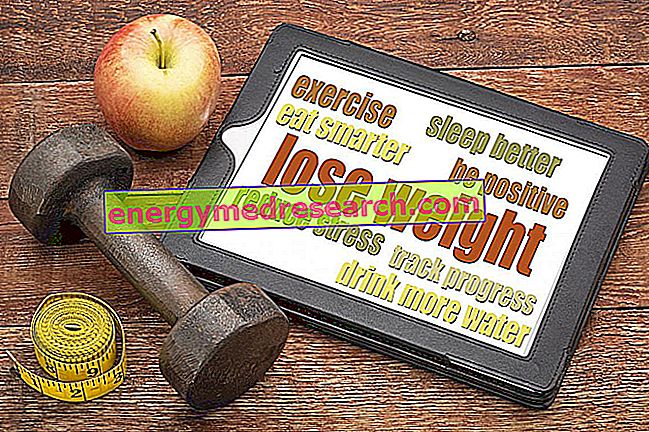
The most recommended slimming therapeutic methods are the less intrusive ones, namely: the adaptation of eating habits and the increase in physical activity.
In this regard, the World Health Organization (WHO) suggests a reduction in the consumption of processed foods, rich in saturated fats, sugars and salt; furthermore, it is recommended to moderate the caloric intake of the diet and to increase the level of general physical activity. It is also advisable to increase the intake of dietary fiber in order to regularize bowel movements and modulate nutritional absorption.
Other methods aimed at weight loss include the use of certain drugs and supplements that reduce appetite, hinder the absorption of certain nutrients (fat and sugar) or reduce the volume of the stomach.
Bariatric Surgery
Bariatric surgery is a surgical slimming therapeutic technique and is used exclusively in cases of severe obesity. It can be applied with two distinct procedures: gastric bypass (gastric exclusion) and gastric banding. Both are effective in moderating the intake of food energy by reducing the size of the stomach; however, since they are not exempt from the risks of surgery, their relevance must be estimated and examined after medical consultation.
Intragastric Balloon
The insertion of the intragastric balloon, also called BIB, is a therapeutic slimming technique that uses the endoscopic method. In practice, unlike bariatric surgery, the installation of the BIB requires no incision. It consists in the positioning of a plastic sphere, full of physiological solution, inside the stomach in order to promote a sense of satiety. By eating less, patients tend to lose weight in the short to medium term.
Weight Loss Supplements
There is a vast range of over-the-counter products called "weight loss supplements". In fact, dietary supplements (even if widely used) are not considered a correct choice for weight loss.
They exist of various kinds and with mechanisms of action quite different from one another. For more information, read the dedicated article by clicking here.
Unlike drugs, dietary supplements for weight loss are free to buy, but few of them seem really effective in the long term. No dietary supplement has a slimming effect without a negative calorie balance per se.
Weight Loss Drugs
They all require medical prescription and their use is extremely controversial. They range from chelating agents (hinder intestinal absorption), to laxatives, to amphetamines (which reduce the sense of appetite). Also in this case, it is advisable to read more by clicking here.
Virtual Gastric Bandage
Virtual gastric banding is a form of hypnosis. This strategy is aimed at influencing the patient's mind to convince him to feel a narrowing of the stomach; as a result, food intake should be reduced allowing the subject to lose weight.
The virtual bandage is often integrated with a psychological treatment aimed at the management of anxiety and with hypnpopedia (memorization of sounds, noises or phrases during sleep).
Research on the use of hypnosis as an alternative technique of body weight management has concluded that it may be an alternative or integral solution to the more classic weight loss methods.
In 1996 it was observed that Cognitive-Behavioral Therapy (CBT), or cognitive behavioral therapy, for weight reduction is more effective if associated with hypnosis.
Acceptance and Commitment Therapy (ACT) is also a "mindfulness" approach (awareness of one's thoughts, actions and motivations) destined to weight loss; in particular, in the last few years, this has shown a remarkable utility of a therapeutic nature.



